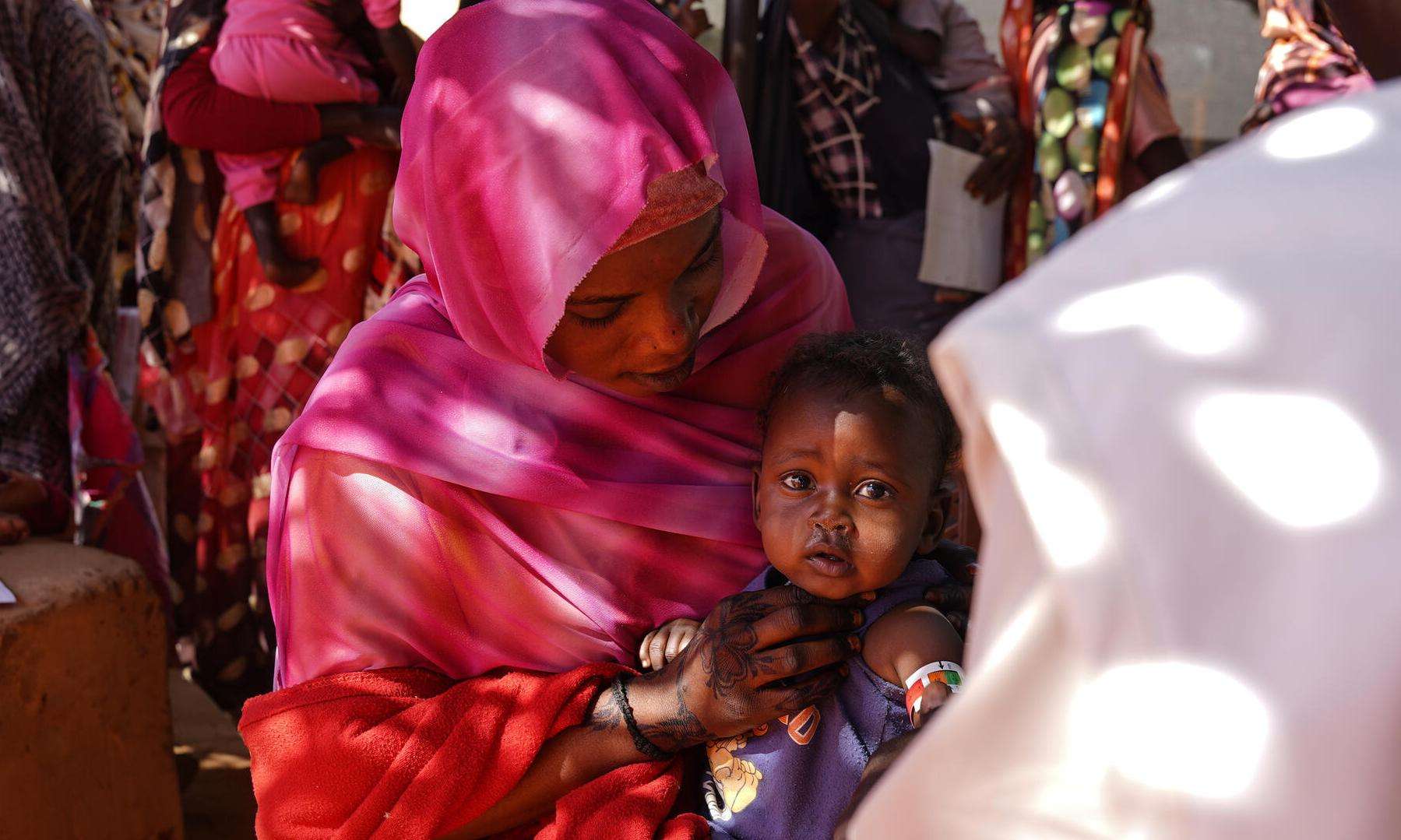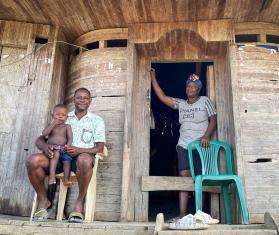NEW YORK/PARIS, April 30, 2024 — As fighting escalates in North Darfur around El Fasher, Sudan, Doctors Without Borders/Médecins Sans Frontières (MSF) is treating war-wounded people while simultaneously scaling up our response to a major malnutrition crisis in Zamzam camp, where the situation is becoming even more critical.
MSF calls on the warring parties to ensure the protection of civilians, health care structures, and staff so that vital assistance can be effectively provided for the tens of thousands of people whose lives are at risk before it is too late. MSF estimates that 370 trucks carrying 20 tons of food each will need to be delivered every month, and with the rainy season fast approaching and potentially impacting roads, action must be taken urgently.
30 percent of children acutely malnourished
In January, MSF conducted a rapid nutrition and mortality assessment of 400 households in Zamzam camp and found alarming numbers of children dying from malnutrition. We then carried out mass screenings of more than 46,000 children in March and April, and found that a staggering 30 percent were suffering from acute malnutrition, including 8 percent with severe cases.
Similar figures were found among the more than 16,000 pregnant and breastfeeding women who were screened: 33 percent were acutely malnourished, and 10 percent of them had severe acute malnutrition. These figures are double the emergency threshold of 15 percent, indicating that there is a massive, life-threatening emergency in Zamzam camp.
Despite urgent calls for support in February following the rapid assessment, MSF remains one of the only international aid agency responding to this enormous crisis—and, as a result, one of the very few able to respond to mass casualty events in El Fasher.
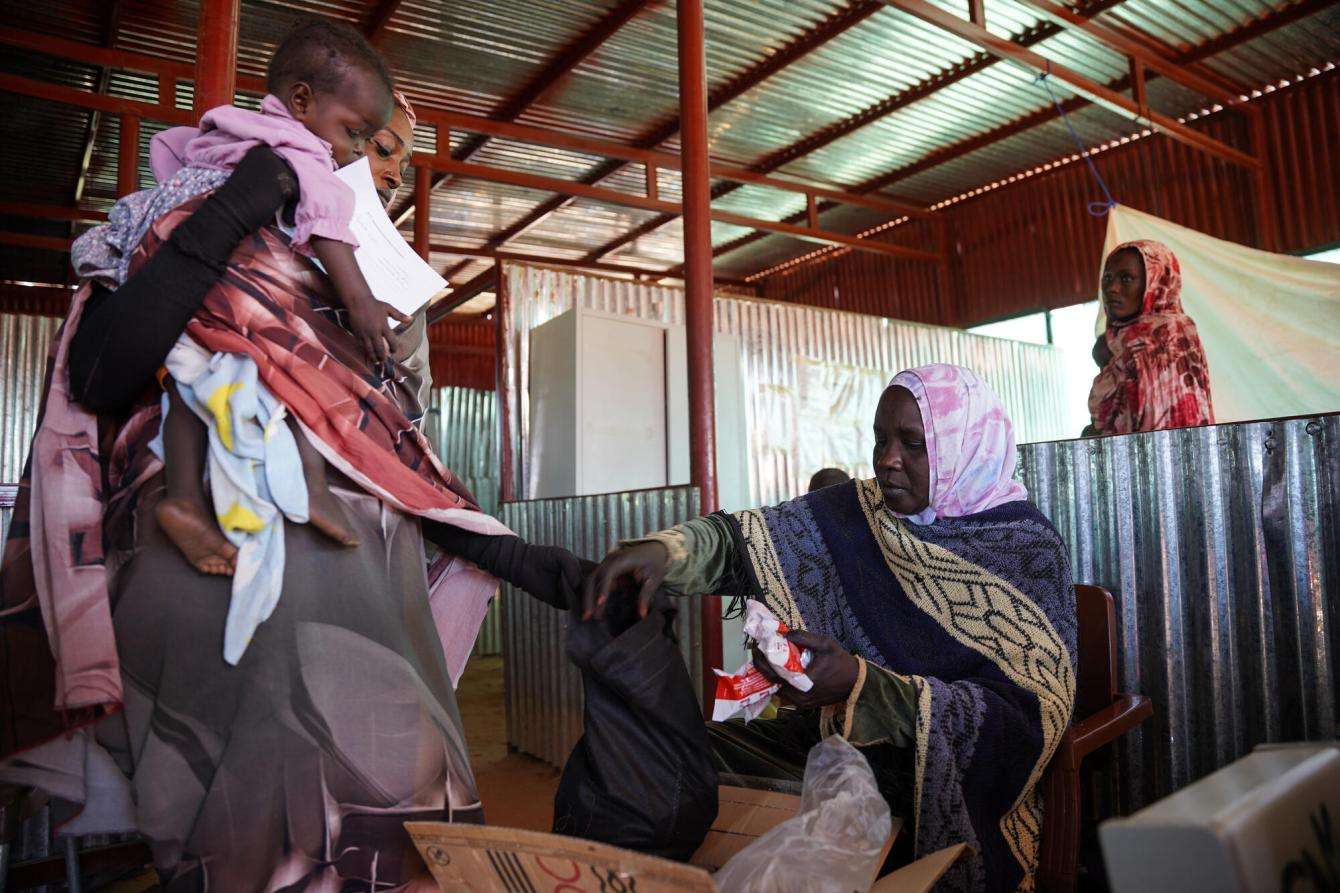
Fighting impedes critical aid distributions
“In Zamzam camp, there is an acute disaster on a catastrophic scale,” said Claire Nicolet, head of MSF’s emergency response in Sudan. “The situation is critical and the level of suffering is immense, but despite this being known for nearly three months, nowhere near enough has been done to help those who are struggling to survive.
With the fighting escalating, we are extremely worried that it will make it even more difficult for the much-needed international support we have been calling for to arrive.”
“We are also worried that there is going to be a rapid deterioration in this already drastic malnutrition crisis over the coming weeks,” she added. “The lives of hundreds of thousands of people were already in jeopardy—and now, with the current fighting, they are even more are at risk. There is an urgent need for the humanitarian response to be rapidly scaled up so this malnutrition crisis can be pulled back from the brink, and for this to happen, it is vital that the warring parties take action to enable safe humanitarian access and the protection of civilians."
New facilities to combat the crisis
MSF has already scaled up our response by opening a second health clinic, enrolling over 11,000 children in our nutrition program and opening a 35-bed field hospital to treat the most critical cases. Currently, there are 23 patients receiving inpatient treatment, including 12 who are suffering from severe acute malnutrition and four who are being treated for suspected measles.
MSF is planning to start a measles vaccination campaign and expand activities to provide support for pregnant women. However, this is not enough to meet the needs. There is no other health care available in the camp and this urgently needs to be addressed.
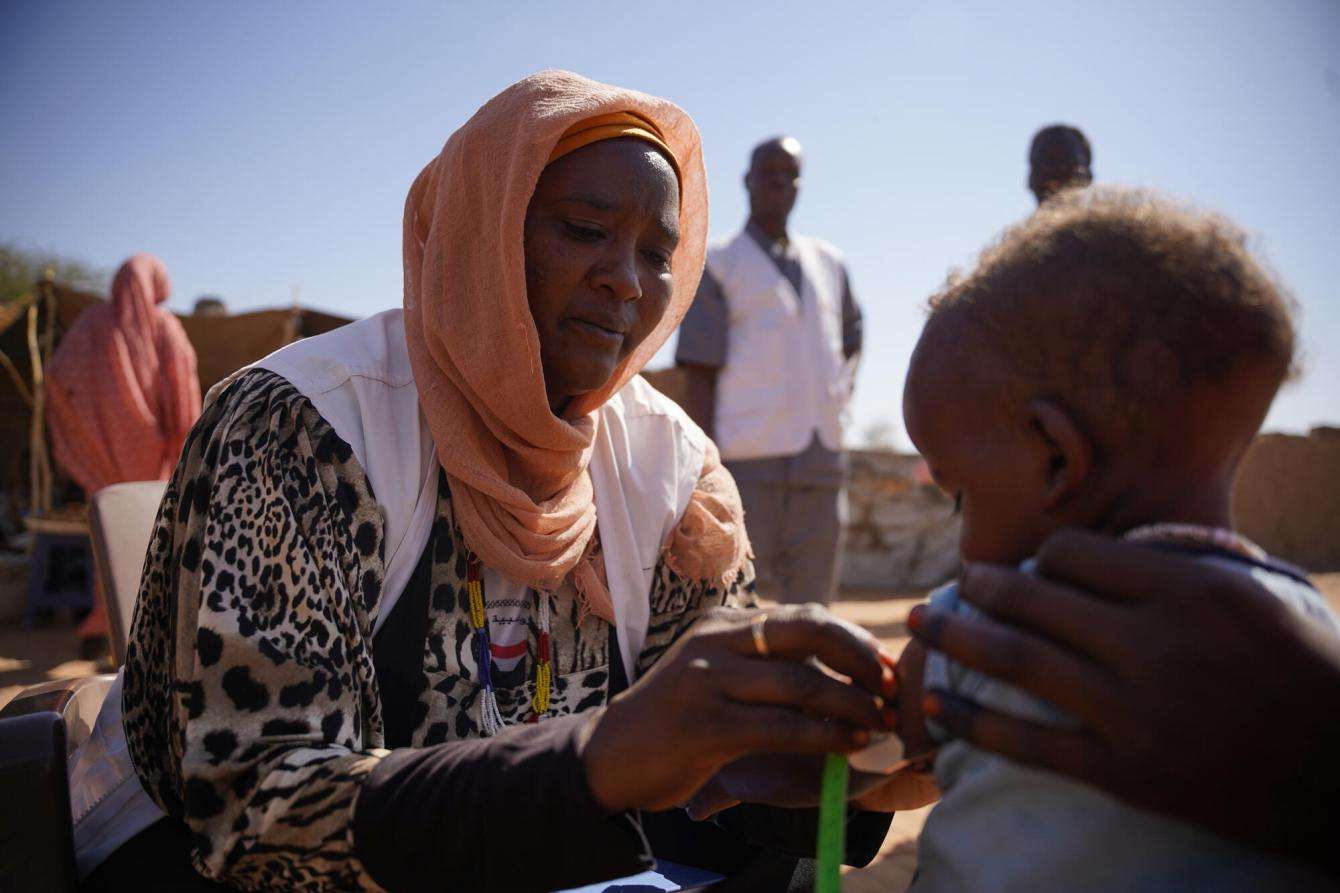
“There is no doubt that there are enormous challenges when it comes to providing humanitarian assistance in Sudan, but it is possible to do it,” said Nicolet. “Restrictions on humanitarian access—including deliberate obstructions of the delivery of aid by warring parties—have significantly hampered the ability of aid agencies to scale up their response, [along with] insecurity. But the situation is too critical for these issues to continue being used as excuses. The UN and the wider humanitarian community must do more to negotiate access for UN agencies and international NGOs to come and assist with the response in Zamzam.”
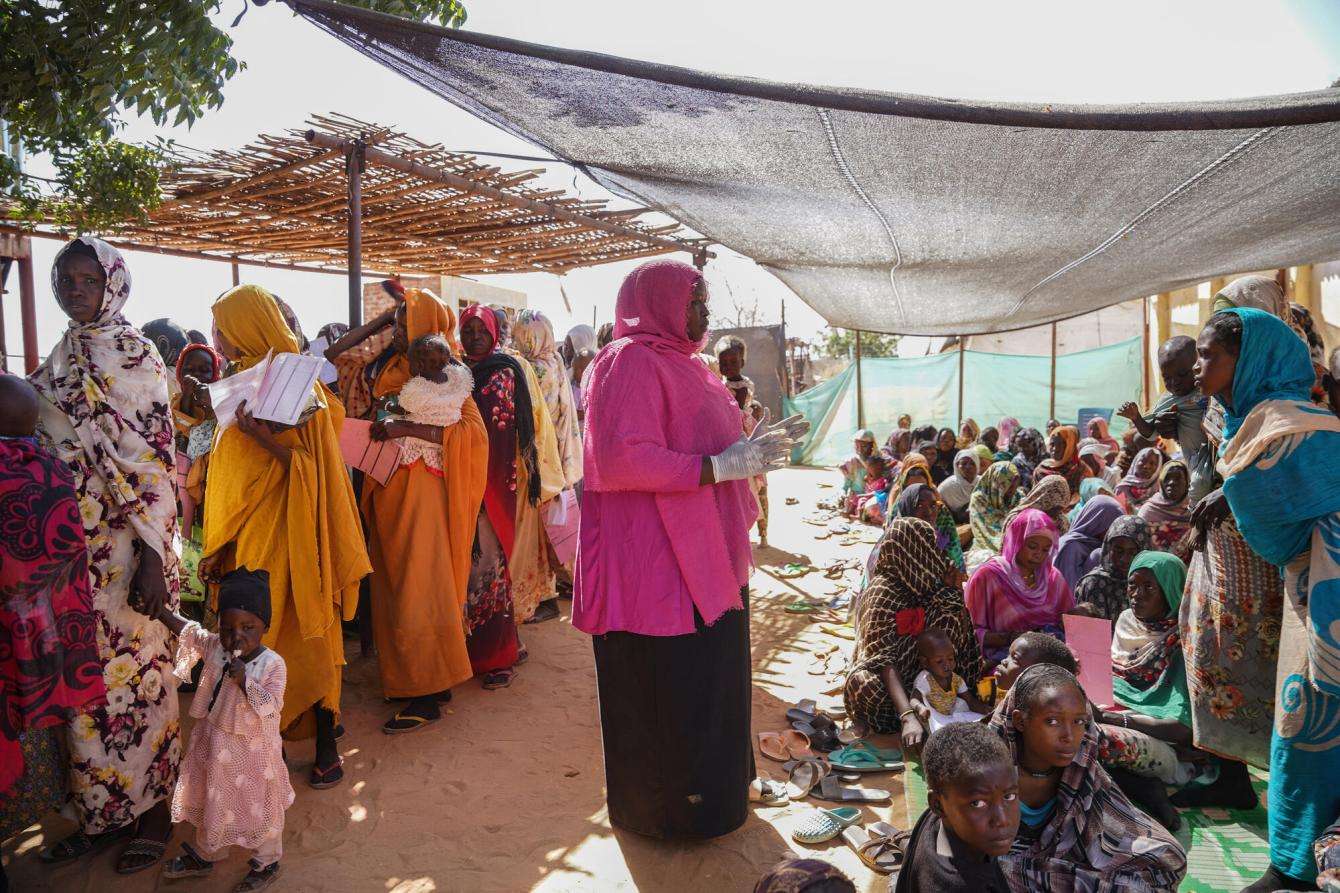
Camp residents’ needs vastly overwhelm meager resources
The living conditions in Zamzam are deplorable. There have been no official food distributions in the camp since May 2023. Although a handful of UN trucks reached El Fasher two weeks ago, nothing had reached Zamzam until April 29, when community leaders were handed food to distribute among the camp’s residents.
Even before the start of the war in Sudan, people in the camp received very little support. Food rations were far below international standards, access to clean water was insufficient, and there were only two other health clinics in the vast camp before MSF opened its first one in 2022.
“The situation is dire for all residents of the camp and over the past year, it has significantly deteriorated. For the thousands of people newly displaced from Nyala, Tawila, and other locations where intense fighting has taken place, the situation is especially bad. Many arrive in Zamzam with nothing and are living in overcrowded schools with no access to food or water. Everyone in Zamzam camp needs support, but the recent arrivals are especially vulnerable. With the violence escalating in North Darfur once again, additional people are becoming displaced, meaning there may soon be even more competition for the already very limited resources in the camp,” added Nicolet.
Reliable, sufficient food is the only solution
The only way to prevent the situation from deteriorating further is to provide people with reliable food distributions and sufficient rations. This urgent aid must be delivered swiftly: With the rainy season approaching, and no tarmac on the roads, it will become difficult for aid trucks to reach Zamzam. Despite being aware of the severity of the situation, and famine alerts coming from UN agencies themselves, the UN is not doing enough to prevent the malnutrition crisis in Zamzam from falling further into catastrophe.
